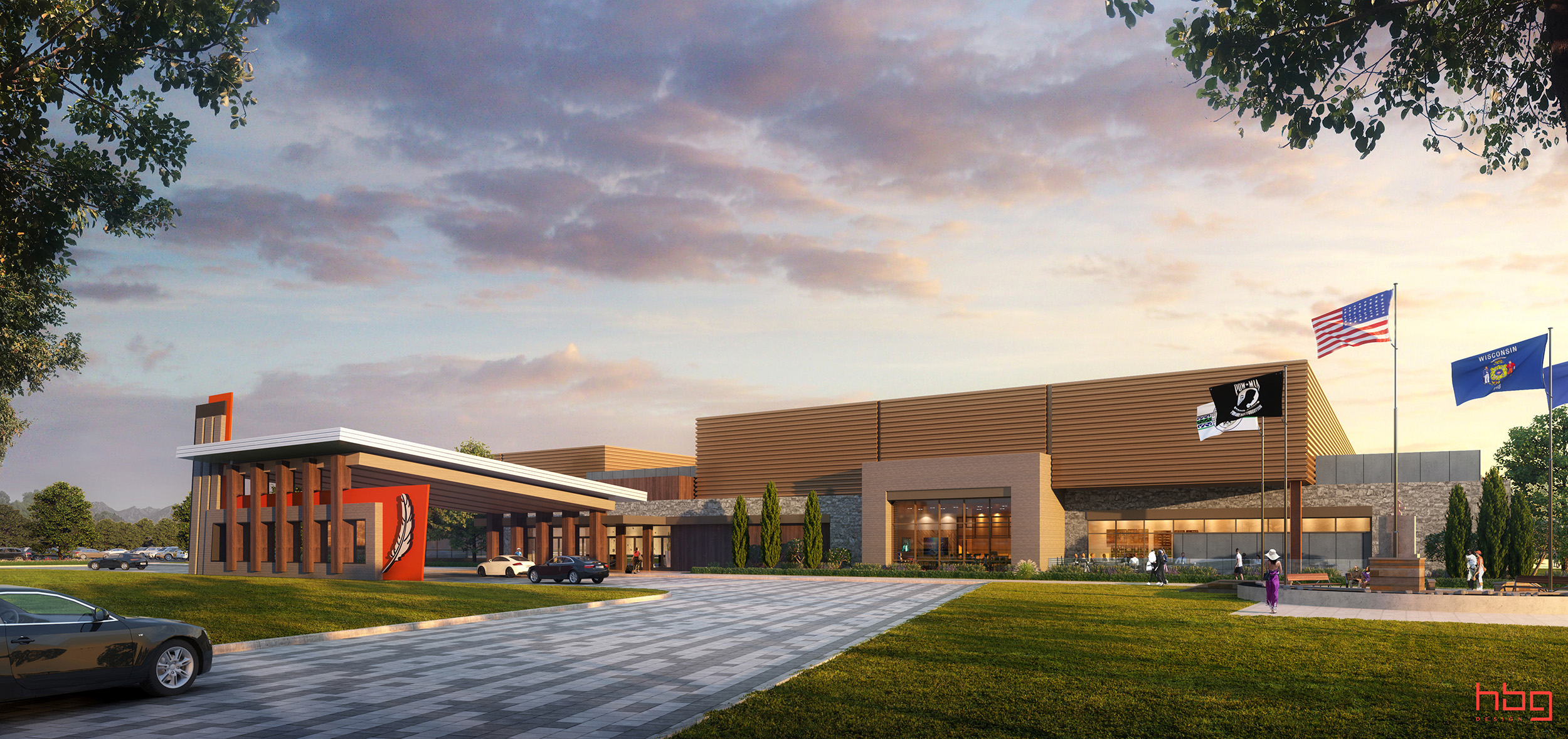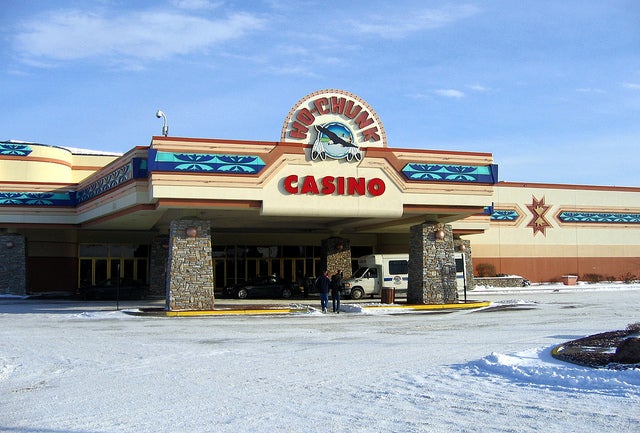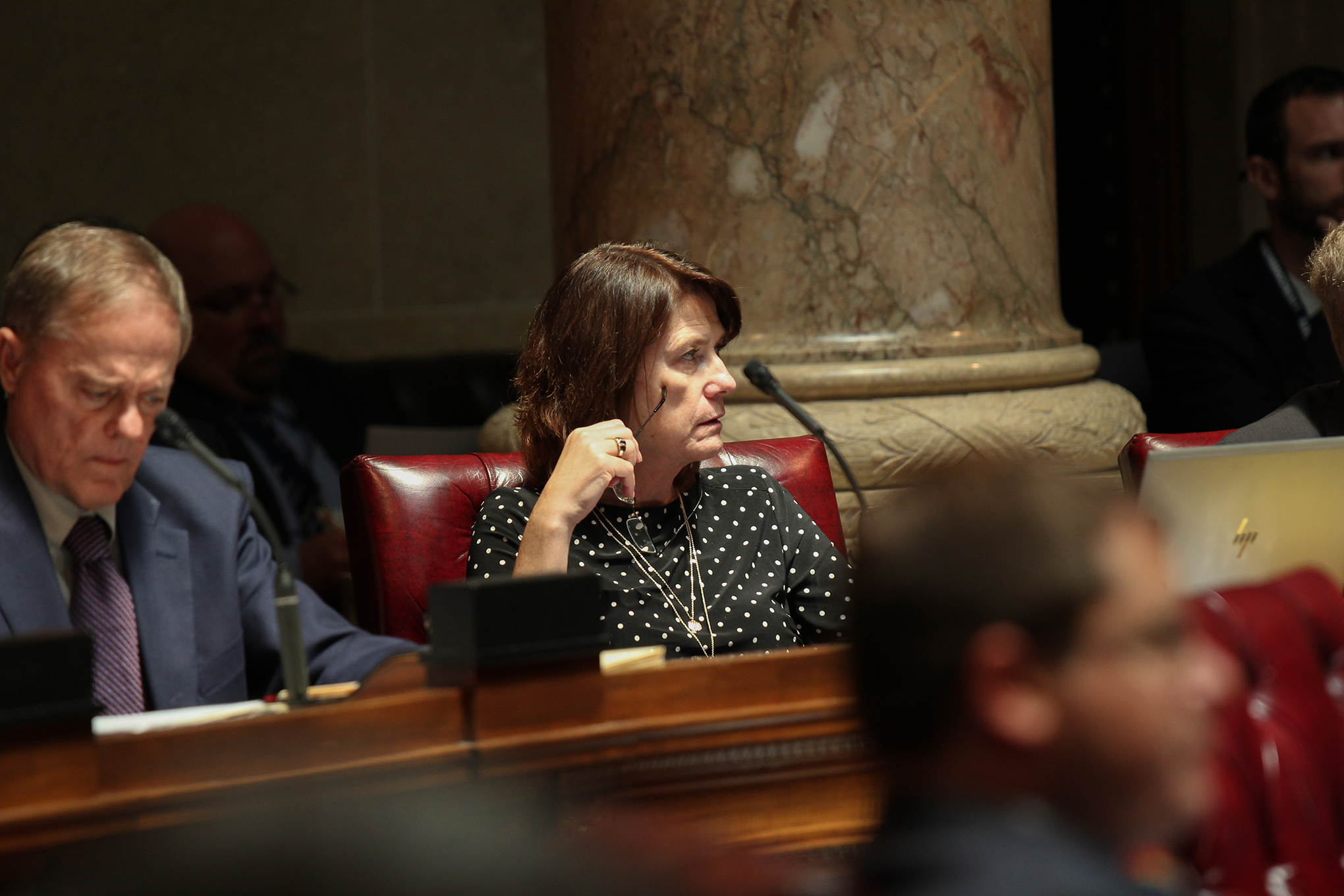Gov. Tony Evers has agreed that the Ho-Chunk Nation’s plans to build a $405 million casino in Beloit should move forward, paving the way for the project to become a reality.
Last year, the U.S. Department of Interior approved the project, placing 32 acres of land in Beloit in trust for the new casino. Evers announced Wednesday that he concurred with the decision.
The Ho-Chunk Nation first submitted an application for an off-reservation casino in 2012.
News with a little more humanity
WPR’s “Wisconsin Today” newsletter keeps you connected to the state you love without feeling overwhelmed. No paywall. No agenda. No corporate filter.
The project would include one of the largest casinos in the state, along with a more than 45,000 square-foot convention center, 40,000 square-foot indoor water park and a 300-room hotel. The complex is located west of Interstate 39/90 and just north of the Illinois border. The project is expected to create more than 1,500 permanent jobs and more than 2,000 construction jobs, according to the tribe.
“As we work to bounce back from this pandemic, we must do everything we can to support economic development in communities across our state,” said Evers in a statement. “The Ho-Chunk Nation and local officials in Beloit and Rock County have been working together toward providing jobs and long-term economic support in the region, and this is an important step forward in making the Beloit casino a reality.”
Evers’ approval of the Beloit casino is in stark contrast to his predecessor’s opposition to a proposed casino in Kenosha. Former Gov. Scott Walker rejected the Menominee Tribe’s plans for the Kenosha facility six years ago. At the time, Walker feared the state may lose its share of revenues from Forest County Potawatomi’s casino in Milwaukee if Kenosha’s casino cut into its business.
Ryan Greendeer, the Ho-Chunk Nation’s public relations officer, said the Forest County Potawatomi has supported the tribe’s plans to build the casino complex.
In the past, other tribes, including the St. Croix Chippewa Indians and Bad River Band of Lake Superior Chippewa, had previously applied for an off-reservation casino in Beloit.
The project now faces final approval from the U.S. Department of Interior under President Joe Biden, which is being led by Deb Haalund. She recently became the first Native American cabinet secretary in the nation’s history.
Once approved, Evers and the Ho-Chunk Nation would amend the tribe’s gaming compact to include revenues from the new casino.
“We are incredibly excited to have this great news of the Governor’s concurrence today,” said Ho-Chunk Nation Vice President Karena Thundercloud in a news release. “We also want to thank the City of Beloit, Rock County, and our respective communities for all the support over the past several years. We look forward to the day when we can celebrate everybody who is helping this project along.”
City leaders in Beloit also backed the project, including City Council President Regina Dunkin.
“This project has been a long time coming and is a game changer for Beloit in terms of jobs created, shared revenues and increased tourism,” said Dunkin. “This casino and resort destination will bring entertainment opportunities for our entire community.”
The city of Beloit and Rock County have an intergovernmental agreement with the tribe to allow revenue-sharing from the casino’s proceeds. The city and county will receive two percent of the net win, which will be split with 70 percent of those revenues going to the city and 30 percent going to the county.
City manager Lori Curtis Luther said the project also presents an opportunity for the city’s diverse population, of which around 15 percent are African American and close to 25 percent are Hispanic or Latino.
“I think that there will be a real impact on our entire population, but certainly those that may not have had as many opportunities historically,” said Luther. “So, I see that as a win-win as well.”
Greendeer said a timeline for completing the project has not yet been set as design plans and other details are still being finalized. He added that the tribe intends to keep the economic impact of the complex confidential.
Tribal casinos have been hit hard during the COVID-19 crisis as many gaming operations shut down for months and laid off their employees.
“This is going to be the cornerstone of the economic recovery from the pandemic,” said Greendeer. “We’re really excited about the amount of jobs this creates.”
The nonpartisan Wisconsin Policy Forum (WPF) released a report in February that found tribal gaming payments to the state’s general fund dropped nearly 82 percent last year after the COVID-19 pandemic closed the doors of tribal casinos. The state’s main fund could lose out on $70 million over 2020, 2021 and 2022.
The National Indian Gaming Association has said it anticipated tribal government revenues would be down by at least $40 billion nationwide due to the pandemic.
Wisconsin Public Radio, © Copyright 2026, Board of Regents of the University of Wisconsin System and Wisconsin Educational Communications Board.






